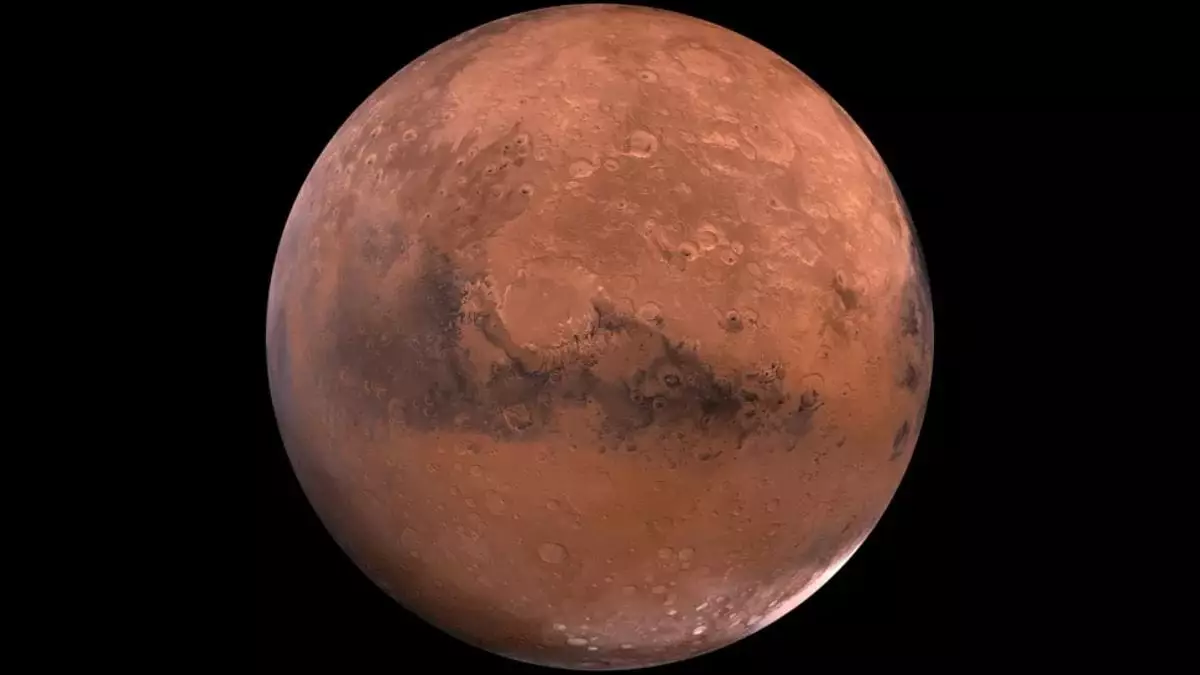When we think of Mars, the image that often comes to mind is of a desolate, arid landscape reminiscent of a post-apocalyptic film. Yet, emerging research suggests that the Red Planet may not have always been the barren, inhospitable environment we see today. In fact, according to recent findings by a team of geologists from the University of Colorado, Mars might have once been a warm and wet world, bearing similarities to our own vibrant Earth. This is not merely a fascinating hypothesis; it’s a challenge to the long-entrenched notion that Mars was predominantly a frozen wasteland.
The study focuses on the crater where NASA’s Perseverance rover is currently conducting its investigations and reveals evidence that questions our basic understanding of Martian climate. For years, scientists clung to the idea that Mars was mostly cold and icy for billions of years. However, evidence of ancient river systems and deltas suddenly makes us reconsider this narrative. The possibility of Mars hosting conditions conducive to liquid water opens the Pandora’s box of questions: Where did this water come from? How can we reconcile its presence with our current understanding of the planet’s climate?
Rethinking Climate Models
Existing climate models predict conditions on Mars that seem incompatible with the geological features we observe. For instance, many models suggest that Mars’ surface temperatures should have been far too cold to maintain liquid water. This raises a critical issue: if Mars was once warm enough for liquid water, how did it manage to defy the odds? Researchers have explored various scenarios through computer simulations to build a more nuanced understanding of the Martian climate, examining what might have happened during the Noachian epoch when water is thought to have sculpted the planet’s surface.
Two primary models were tested: one depicting an ice-melt scenario and another that imagined a more Earth-like world with warm, humid conditions. The discrepancies between these models yield radically different visions of Mars, demonstrating just how complex and multifaceted our planetary neighbor really is. The findings highlight the need for flexibility in our scientific narratives, pushing us to entertain the idea that Mars’ geological history is not as simple as previously believed.
Embracing Uncertainty in Scientific Inquiry
The beauty—and perhaps, the terror—of science lies in its perpetual evolution. Acknowledging that Mars may have previously offered conditions sufficient for rainfall and lakes forces us to question the very foundations of our space exploration. As Amanda Steckel from the California Institute of Technology pointedly notes, making definitive claims about the planet’s past is exceptionally challenging. The range of elevations where the river valleys originate makes the ice-dominant model seem increasingly untenable. Science, or rather, the scientific method, should embody a relentless pursuit of truth even when it leads us down uncertain paths.
This journey of unfurling complexity is not limited to Mars but sheds light on Earth’s early history as well. By exploring the unknowns of our celestial neighbor, we gain valuable insights into the circumstances that may have fostered life here on Earth. The interplay between cold and wet, frozen and flourishing, contributes to an understanding of planetary evolution that should ignite curiosity rather than fear.
What This Means for Future Exploration
As we venture deeper into this research, the question becomes stark: How does our shifting understanding of Mars influence future exploration? NASA’s Perseverance rover stands as a beacon of hope, offering the tools to unearth Martian secrets. As we pursue answers, the possibility of discovering a world that once resembled Earth becomes tantalizingly real. It could ultimately reframe the search for extraterrestrial life, not as an improbable dream but as an attainable reality waiting on the surface of the Red Planet.
In the grand tapestry of human curiosity, the mystery of Mars serves as both a mirror to our past and a lens through which we can glimpse possible futures. The planet holds secrets that may unlock essential truths not just about our place in the universe but about the fragile context of life itself. Embracing this complexity will not only illuminate the red sands of our neighbor but also ground our understanding of life on Earth, reminding us of our interconnectedness in this vast cosmos.

Leave a Reply